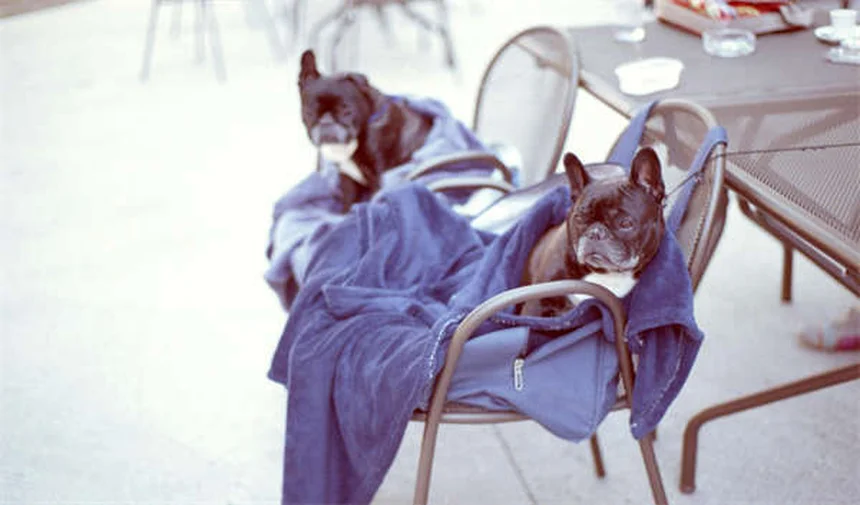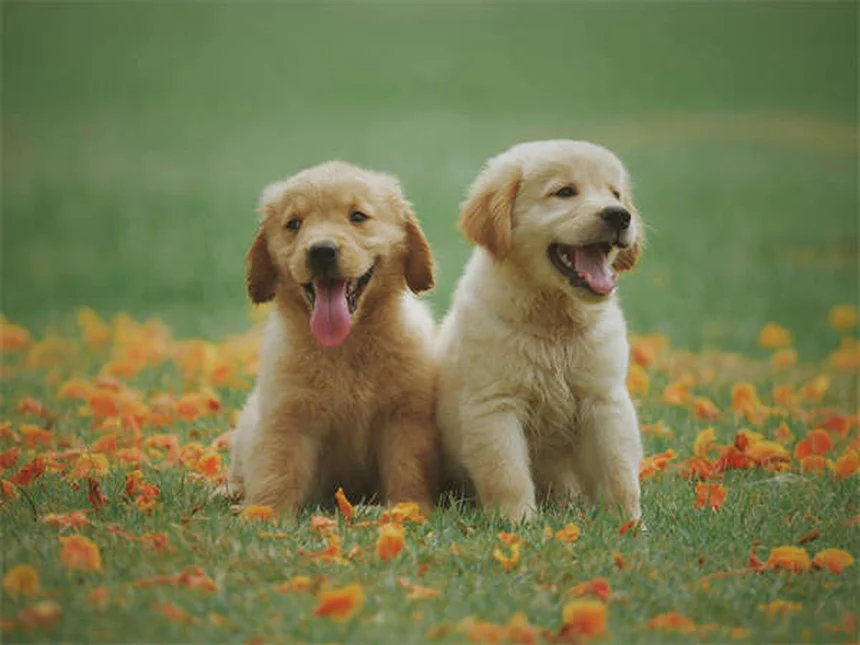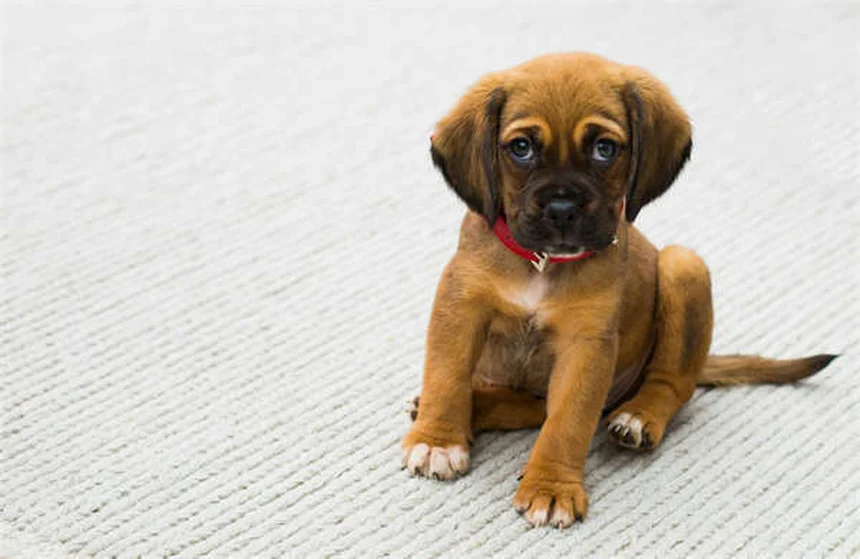When can puppies be around other dogs safely? The answer is: after they're fully vaccinated, typically around 18-22 weeks old. I know you're excited to introduce your new furry friend to the world, but those first few months are crucial for their health. Here's the deal - puppies need socialization and protection from diseases like parvovirus and distemper, which can be deadly. We'll walk you through the safest ways to balance these needs so your pup grows up healthy and well-adjusted. Trust me, as someone who's raised several puppies, this early caution pays off big time in the long run!
E.g. :9 Clear Signs Your Pet Is Jealous (And How to Fix It Fast)
- 1、Keeping Your Puppy Safe While Exploring the World
- 2、Navigating the Puppy Vaccination Maze
- 3、Socialization Without the Risk
- 4、Pro Tips for Puppy Protection
- 5、The Light at the End of the Tunnel
- 6、The Hidden Dangers in Your Neighborhood
- 7、Beyond Vaccines: Building Puppy Immunity
- 8、Alternative Socialization Methods
- 9、When Accidents Happen
- 10、The Joy of Responsible Puppy Parenting
- 11、FAQs
Keeping Your Puppy Safe While Exploring the World
Hey there, fellow dog lover! I know you're excited to show your new puppy the world, but let's talk about when it's truly safe for your furry friend to start exploring. This isn't just about fun - it's about protecting their health during those crucial early months.
The Vaccination Dilemma
Here's the tricky part: puppies need two things that seem to conflict - they need socialization and they need protection from diseases. Their immune systems are still developing, making them vulnerable to serious illnesses like parvovirus and distemper.
Did you know that parvo can survive in soil for up to a year? That's why we need to be extra careful about where we take unvaccinated puppies. The good news? Your backyard (if it's secure and hasn't had sick animals recently) is generally safe for early exploration. It's like their personal playground while they build up their immunity!
When Can Puppies First Experience the Great Outdoors?
This is probably your biggest question: "When can my puppy finally go outside?" The simple answer is: after they complete their vaccination series, typically around 16-20 weeks, plus a two-week waiting period for full immunity.
Here's a handy table to visualize the timeline:
| Vaccine | First Dose | Booster Frequency | Final Dose |
|---|---|---|---|
| DAPP | 6-8 weeks | Every 3-4 weeks | 16-20 weeks |
| Rabies | 12-15 weeks | Annual | N/A |
 Photos provided by pixabay
Photos provided by pixabay
Core Vaccines: Non-Negotiables
Every puppy needs their core vaccines, no exceptions. These protect against the most dangerous and common diseases:
- DAPP: Shields against distemper, adenovirus, parainfluenza, and parvovirus
- Rabies: Required by law in most states
I remember when my neighbor's puppy got parvo - it was heartbreaking and expensive (treatment can cost $3,000-$5,000). That experience really drove home why we vaccinate.
Optional But Important Vaccines
Depending on where you live and your puppy's lifestyle, your vet might recommend additional protection:
"But wait," you might ask, "how do I know which extra vaccines my puppy needs?" Great question! It all comes down to risk factors like:
- Local disease prevalence
- Exposure to wildlife
- Plans for boarding or dog parks
For example, if you live where rattlesnakes roam, that vaccine could be a lifesaver (literally!). But in urban areas, it might be unnecessary.
Socialization Without the Risk
Safe Ways to Socialize Before Full Vaccination
Here's where we get creative! You can start socializing your puppy without exposing them to dangerous public spaces:
• Host puppy playdates with vaccinated dogs you know are healthy
• Carry your pup in a stroller for short outings
• Enroll in puppy classes that require vaccination records
I once saw a clever owner bring their puppy to a busy park in a baby carrier - the pup got to experience sights and sounds safely!
 Photos provided by pixabay
Photos provided by pixabay
Core Vaccines: Non-Negotiables
Good news! Most diseases don't cross species lines. You can introduce your puppy to cats or other pets earlier than you might think. Just watch for stress signals and go slow.
Remember that hilarious video of the golden retriever puppy meeting a kitten for the first time? That's the kind of positive early experience we're aiming for!
Pro Tips for Puppy Protection
Creating a Safe Environment
Beyond vaccinations, here are some practical steps to keep your puppy healthy:
• Designate a clean, fenced area for outdoor play
• Keep your puppy away from unknown animal feces
• Carry your pup through vet clinic parking lots
One client of mine made a "puppy passport" with vaccination records to show neighbors - it helped everyone understand the precautions needed.
Communication is Key
Don't be shy about telling people your puppy isn't fully vaccinated yet. Most dog lovers will understand and respect your caution. I've found that a simple, "We're still working on vaccinations - can we say hello from a distance?" works wonders.
"Is all this really necessary?" you might wonder. Absolutely! Those first few months set the foundation for your puppy's lifelong health and happiness. A little caution now means years of worry-free adventures later.
The Light at the End of the Tunnel
Before you know it, your puppy will be fully vaccinated and ready to explore the world with you. That first real walk in the park? Pure magic. The first trip to the pet store? Priceless. Those first awkward dog park interactions? Hilarious memories in the making.
Just remember - every puppy develops at their own pace. Work closely with your vet, follow these guidelines, and before long, you'll have a healthy, happy, well-socialized companion ready for all of life's adventures!
The Hidden Dangers in Your Neighborhood
 Photos provided by pixabay
Photos provided by pixabay
Core Vaccines: Non-Negotiables
You might think your quiet suburban street is perfectly safe, but let me tell you about some surprising danger zones. That beautiful patch of grass near your mailbox? It could be a minefield of hidden hazards. Neighborhood cats, raccoons, and other wildlife often leave behind more than just footprints.
I'll never forget when my friend's puppy got sick after sniffing around a storm drain. Turns out, standing water in urban areas can harbor all sorts of nasty bacteria. And get this - concrete surfaces can retain viruses for days after an infected animal passes through. That's why I always recommend carrying small puppies over sidewalks until they're fully vaccinated.
Seasonal Risks You Need to Watch For
Did you know that parvo outbreaks often spike in spring and fall? It's not just about the temperature - more puppies are born during these seasons, creating perfect conditions for disease spread. Here's a quick comparison of seasonal risks:
| Season | Primary Risk | Prevention Tip |
|---|---|---|
| Spring | Parvovirus outbreaks | Avoid dog parks during peak puppy season |
| Summer | Heatstroke & parasites | Walk early morning/late evening |
| Fall | Fleas & ticks | Use vet-approved preventatives |
| Winter | Antifreeze poisoning | Wipe paws after walks |
Beyond Vaccines: Building Puppy Immunity
Nutrition's Role in Immune Health
Here's something most new puppy parents don't realize - what you feed your pup can significantly impact their ability to fight off infections. High-quality puppy food isn't just about growth; it provides essential nutrients that support immune function.
I always recommend looking for foods with these immune-boosting ingredients: omega-3 fatty acids (great for reducing inflammation), antioxidants like vitamin E, and probiotics for gut health. Remember that time my cousin switched to a better food and her puppy stopped getting every little bug that went around? That wasn't coincidence!
The Power of Proper Rest
You wouldn't believe how many people overlook this simple fact - sleep is crucial for immune function. Puppies need 18-20 hours of sleep daily, and not just because they're cute when they're sleepy. During deep sleep, their bodies produce infection-fighting proteins.
Create a quiet, comfortable sleeping area away from household traffic. I've seen puppies who weren't getting enough sleep catch every cold going around, while well-rested pups stayed healthy as horses. And speaking of horses...
Alternative Socialization Methods
Virtual Puppy Playdates
In today's digital world, we've got options our grandparents never dreamed of! "Can my puppy really socialize through a screen?" You bet they can! While it's not a complete substitute for real interaction, video calls with other puppies can help with basic socialization.
Set up a laptop at puppy eye level and let them watch and listen to other dogs. They'll pick up on body language cues and sounds. One of my clients did this daily with her sister's vaccinated adult dog, and when they finally met in person, it was like they were old friends!
Sensory Exploration at Home
You don't need to risk public spaces to give your puppy new experiences. Create a sensory adventure course right in your living room with different textures, sounds, and smells:
• Walk on crinkly aluminum foil
• Navigate through a tunnel of hanging towels
• Sniff containers with various spices (mild ones!)
• Listen to recorded city sounds at low volume
I helped design one of these for a puppy afraid of everything, and within weeks, he was the most confident little guy at puppy class!
When Accidents Happen
Emergency Preparedness
No matter how careful we are, sometimes things go wrong. That's why every puppy parent should have an emergency kit ready. Here's what you need:
• Your vet's after-hours number (not just the regular office line)
• A pet first-aid book (I like the Red Cross one)
• Hydrogen peroxide (for inducing vomiting - but only if instructed)
• A soft muzzle (even sweet puppies bite when in pain)
Last winter, my neighbor's puppy got into some chocolate right before a snowstorm. Because she was prepared, she knew exactly what to do until they could reach the emergency vet.
Recognizing Early Warning Signs
Puppies can go from playful to critically ill frighteningly fast. Here are subtle signs many owners miss:
• Less interest in food (even if they're still eating)
• Sleeping more than usual
• Slightly warmer ears than normal
• Less playful but not obviously sick
I always tell my clients: "If you're wondering whether to call the vet, the answer is yes." It's better to be that slightly paranoid pet parent than to wait too long. After all, puppies are masters at hiding illness until it's serious.
The Joy of Responsible Puppy Parenting
All these precautions might seem overwhelming, but trust me - the payoff is incredible. There's nothing like watching your once-vulnerable puppy blossom into a confident, healthy dog ready to take on the world with you.
And here's a little secret: all this careful attention in the early days creates an unbreakable bond. Your puppy learns you're their protector, their guide, their safe place. That's worth every bit of extra effort, don't you think?
Before you know it, you'll be the one giving advice to new puppy parents, sharing your hard-earned wisdom. And maybe, just maybe, you'll help someone else avoid those middle-of-the-night panic attacks we've all experienced!
E.g. :when did you start taking your puppy outside? : r/puppy101
FAQs
Q: Can I take my 8-week-old puppy to meet other dogs?
A: Hold on there! While it's tempting to show off your new puppy, 8 weeks is too early for public dog interactions. Here's why: at this age, your pup hasn't completed their vaccination series, making them vulnerable to serious illnesses. Instead, focus on safe socialization options like meeting fully vaccinated dogs you know are healthy in controlled environments like your backyard. I always recommend puppy playdates with trusted friends' dogs over public spaces during these early weeks. Remember, a little patience now means a healthier dog later!
Q: What's the earliest age puppies can go to dog parks?
A: Wait until at least two weeks after their final puppy shots, usually around 18-20 weeks old. Dog parks are breeding grounds for germs, and even vaccinated adult dogs can carry diseases that are dangerous for puppies. I've seen too many cases where excited new owners brought puppies to parks too early, resulting in expensive vet bills. If you're itching to get out, try carrying your pup in a stroller for short outings - they'll get exposure to sights and sounds without the disease risk!
Q: Are puppy classes safe before full vaccination?
A: Yes, if you choose carefully! Reputable puppy classes require proof of vaccinations for all participants and maintain clean facilities. These controlled environments are actually one of the safest ways to socialize your unvaccinated pup. Just make sure the class follows proper protocols - I always recommend calling ahead to ask about their cleaning procedures and vaccination requirements. A good class will understand your concerns and be happy to explain their safety measures.
Q: Can my puppy play with cats before being fully vaccinated?
A: Great news! Most dog diseases don't transmit to cats (and vice versa), so feline friends make perfect early playmates. I've helped many clients introduce puppies to resident cats during the vaccination period. Just supervise their interactions - those tiny puppy teeth can be sharp! This is actually a fantastic way to teach your pup proper social skills while keeping them safe from canine diseases. Start with short, positive sessions and always give both animals an escape route.
Q: How can I socialize my puppy without risking their health?
A: Get creative with safe exposure! Here are my top tips from years of puppy raising: carry your pup in public places (pet stores, outdoor cafes), invite vaccinated dog friends over, play sounds of city life at home, and introduce various surfaces in your yard. One of my favorite tricks is using a puppy stroller - it lets them experience the world without touching potentially contaminated ground. Remember, socialization isn't just about other dogs - it's about positive exposure to all sorts of sights, sounds, and experiences!


